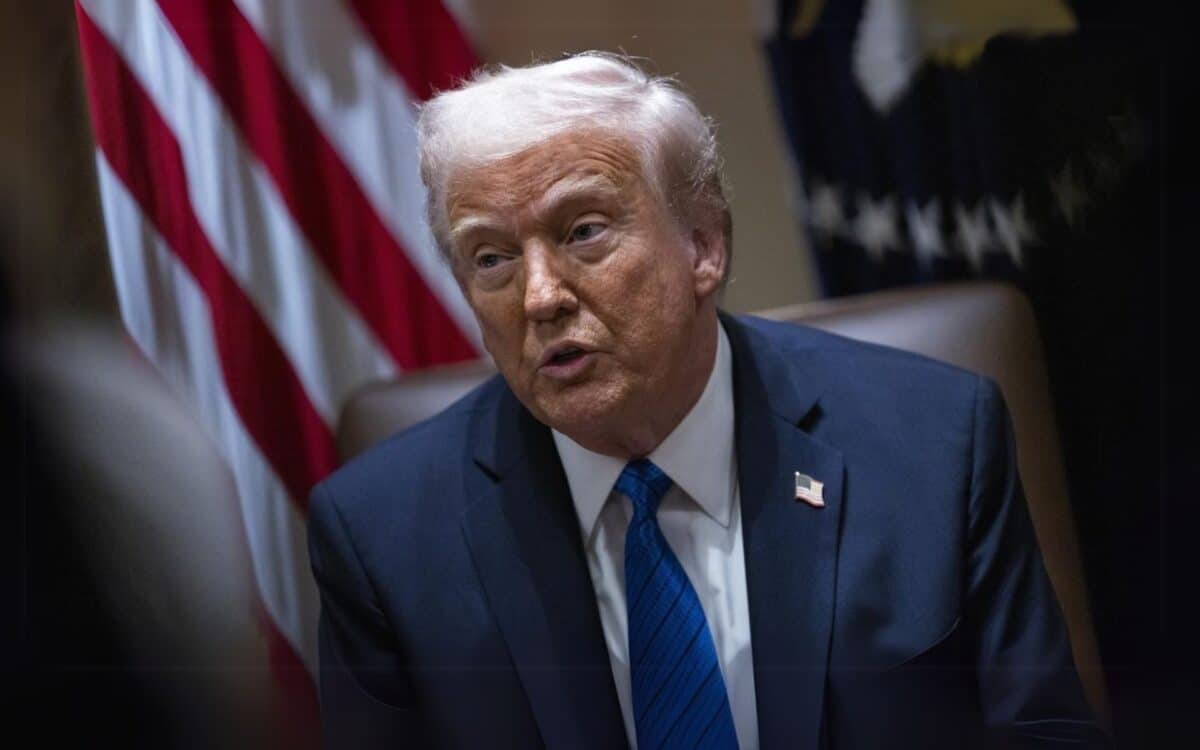President Donald Trump has issued a strong warning to Canada and the European Union (EU) over potential economic actions that could harm the U.S. economy.
According to Newsweek, the president has signaled that he will take drastic measures, including imposing larger-than-expected tariffs, if these nations collaborate in ways that threaten American interests.
This move is part of his ongoing push to reshape trade relations with foreign partners, aiming to protect domestic industries from external competition.
Trump’s Strong Warning on Tariffs to Canada and the EU
President Donald Trump has warned both Canada and the European Union (EU) that they will face significant tariffs if they are found to harm the U.S. economy.
The announcement, made via Truth Social, signals a tough stance on trade relations, with the president threatening tariffs “far larger than currently planned” if the two entities cooperate to undermine U.S. interests.
Trump stated on Thursday :
If the European Union works with Canada in order to do economic harm to the USA, large scale tariffs, far larger than currently planned, will be placed on them both in order to protect the best friend that each of those two countries has ever had!
Trump’s comments came just hours after he revealed plans to impose a 25% tariff on all auto imports starting April 3.
The new tariffs will not only target cars but also auto parts like engines and electrical components, with the aim of shielding the U.S. automobile industry from excessive foreign competition.
Trump argued that the move will “spur growth,” saying “We’ll effectively be charging a 25 percent tariff.” The White House said in a statement:
President Trump is taking action to protect America’s automobile industry, which is vital to national security and has been undermined by excessive imports threatening America’s domestic industrial base and supply chains.
International Reactions
In response to the announcement, Canada’s Prime Minister Mark Carney called the tariffs a “very direct attack” on Canadian interests. He emphasized that Canada would defend its workers, companies, and national interests, adding :
We will defend our workers. We will defend our companies. We will defend our country.
Similarly, EU Commission President Ursula von der Leyen warned that tariffs are detrimental to both businesses and consumers, noting that
Tariffs are taxes — bad for businesses, worse for consumers equally in the U.S. and the European Union – She added that the EU will
Continue to seek negotiated solutions, while safeguarding its economic interests.
Potential Impact on the Global Market
The tariffs are expected to affect a wide range of industries, especially in countries like Mexico, Japan, and South Korea, which are major suppliers of auto parts and vehicles to the U.S. market.
With the U.S. importing nearly eight million cars and light trucks annually, and parts valued at over $197 billion, the tariff threat raises concerns over disrupted supply chains, price hikes for consumers, and potential retaliatory measures from trading partners.
Trump’s tariff policies are not entirely new; they build on previous tariffs imposed by his administration, which included duties on imports from China, Mexico, and Canada.
The introduction of auto tariffs is expected to generate an estimated $100 billion in revenue for the U.S. economy.
Potential Economic Consequences and Retaliation Concerns
However, analysts warn that the move could increase costs for American consumers, with the average price of an imported vehicle potentially rising by as much as $12,500.
As of now, neither Canada nor the EU have expressed intentions to collaborate in harming the U.S. economy. However, both have indicated they will retaliate if necessary, leading to heightened uncertainty about the future of U.S.-Canada-EU trade relations.
Trump also addressed the issue of auto parts, stating :
If parts are made in America and a car isn’t, those parts are not going to be taxed or tariffed and we will have very strong policing… It’s one number and that number is going to be used to reduce debt greatly in the United States and build things.
The situation continues to evolve as the new tariffs are set to take effect on April 3.









